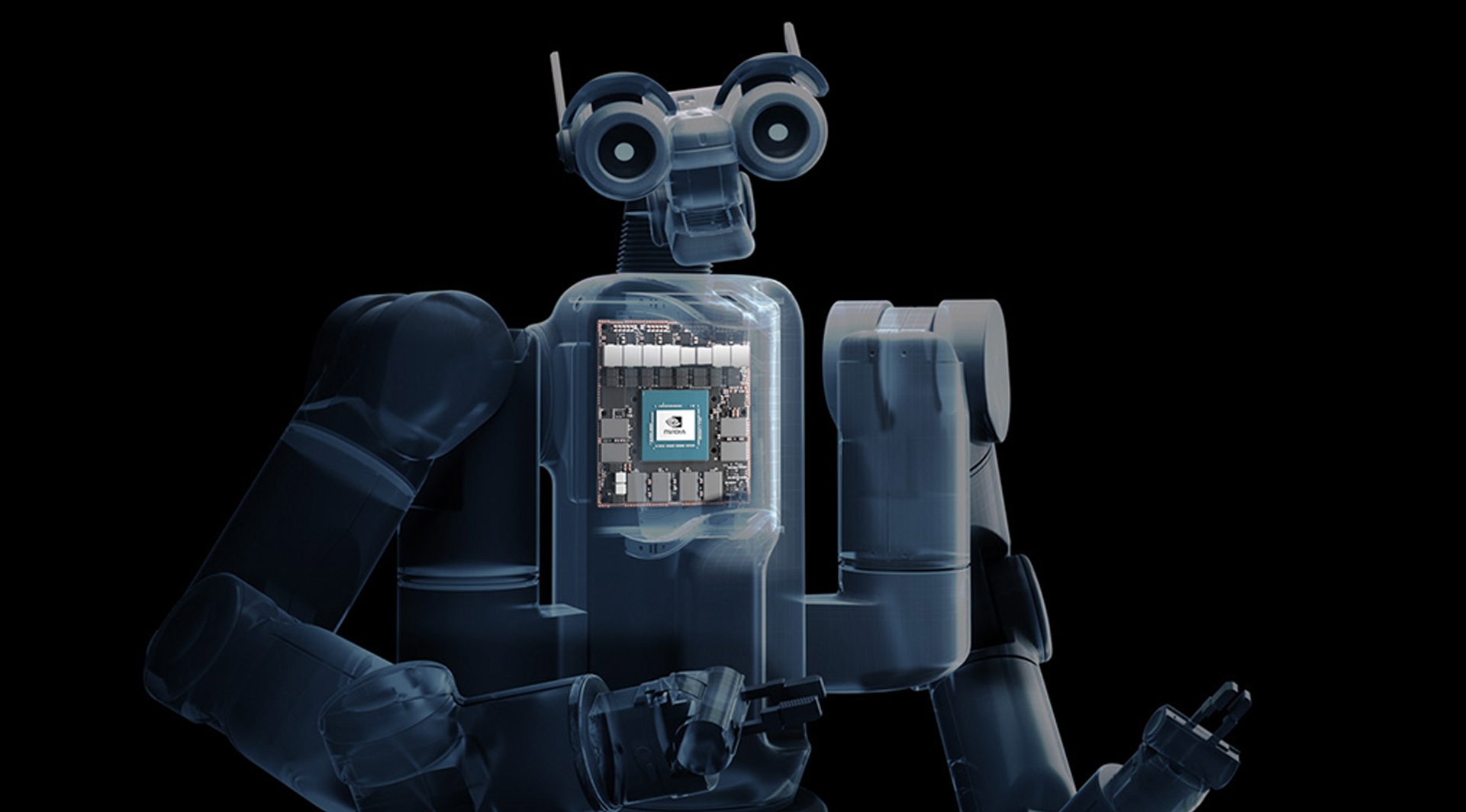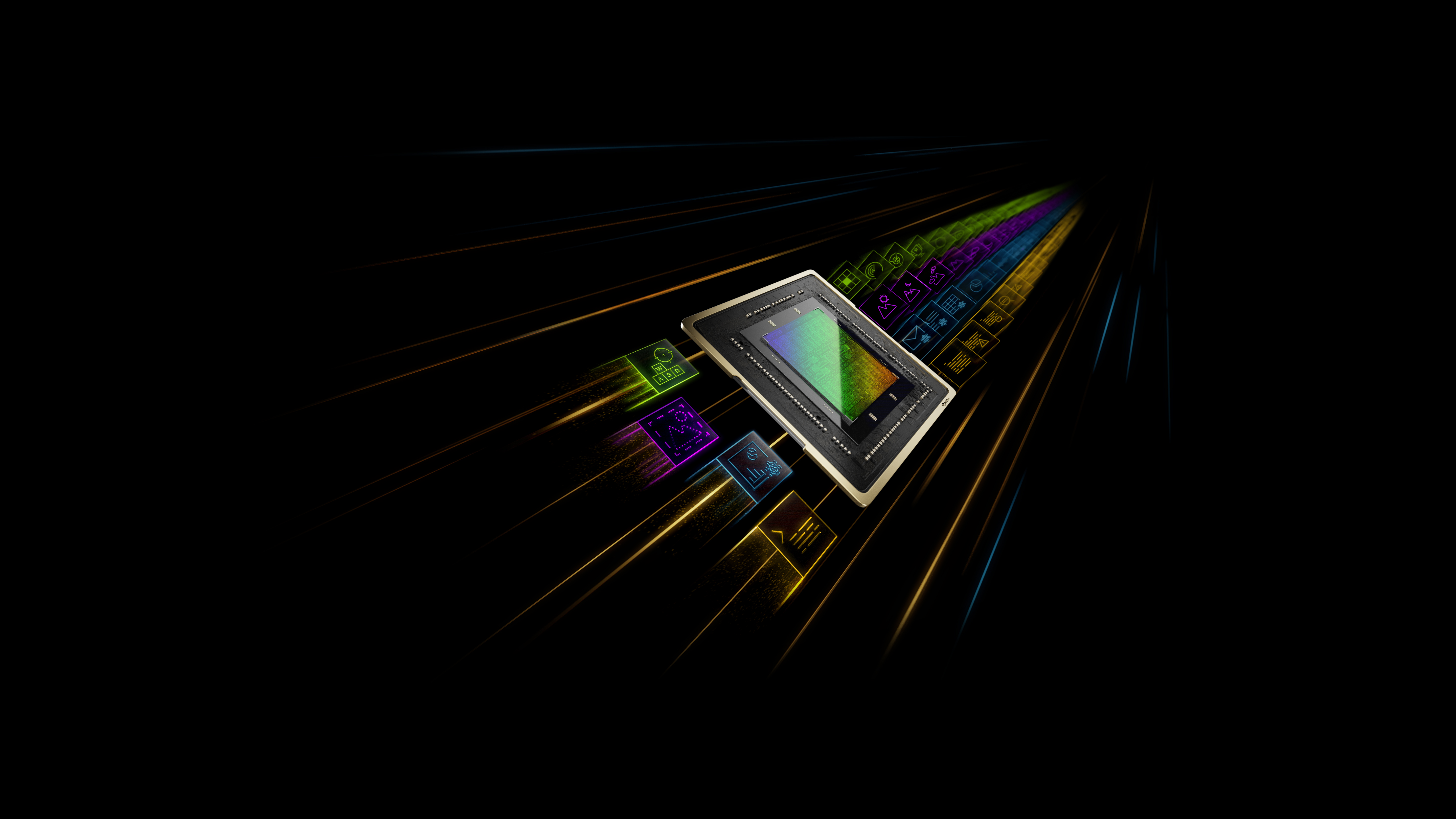Nvidia is set to dominate AI — here's why
How one company's history is shaping your tomorrow

You open your eyes and you spot your robot cleaner dashing to the crumbs it missed last night. Your AI assistant has already scanned the world’s breaking news, browsed events happening in your area, and accounted for the weather to propose an ideal schedule for your weekend.
If Nvidia’s dreams come true, this won’t be a cut scene in a futuristic RPG, it will be a regular start to your day.
Recently valued at $2 trillion, a move away from gaming and into the AI space seems to have paid off for chip-maker Nvidia which now ranks among the world’s most valuable public companies.
It also means its dream “where every machine that moves will be autonomous, and robots and simulated agents will be as ubiquitous as iPhones” gets to be taken seriously.
The Foundation Agent

Hoping to turn that vision statement into reality are Dr. Jim Fan and Prof. Yuke Zhu, the co-founders of a new Nvidia research group they’re calling GEAR.
This stands for Generalist Embodied Agent Research, which itself stands for self-taught AI. Nvidia wants its AI to be able to learn and perform in both the virtual and real worlds without human input.
As Fan posted on X that they “are setting out on a moon-landing mission”, whether this is to be taken figuratively or literally is yet to be seen — after all science fiction is full of space-based robots that can think for themselves.
So far they’ve created an AI bot dubbed “Voyager” that can explore vast Minecraft worlds and interact with the environment in a meaningful way. The information gleaned while navigating a virtual world can help it learn to navigate our world.
It isn't just in the virtual space that Fan and colleagues are letting AI run amok. The team also have a bot that can best be described as ‘ChatGPT with an arm’ and one that can teach a mechanical hand to stretch and twist in complex maneuvers.
ChatGPT's favorite chips
Career update: I am co-founding a new research group called "GEAR" at NVIDIA, with my long-time friend and collaborator Prof. @yukez. GEAR stands for Generalist Embodied Agent Research.We believe in a future where every machine that moves will be autonomous, and robots and… pic.twitter.com/wm9HUsvXwtFebruary 23, 2024
None of these remarkable advances happened overnight. Nvidia had been building chips for years. A tweak that made them programmable set the wheels in motion for thousands of the company’s GPUs to eventually be used to train ChatGPT, OpenAI’s creation that helped center the tech world's agenda around artificial intelligence.
It wasn’t just great hardware that got us here. Nvidia’s CUDA software brought a complete deep learning stack ripe for building high-performance GPU-accelerated applications for AI tools. It is one of the most widely used AI architectures.
But take nothing for granted. Even when you’re Nvidia, a competitor that can disrupt the field is never too far away. An example of this can be found in Groq, an AI hardware startup building a new kind of chip that can run AI software very fast.
'Kids shouldn't learn to code'
Has this become another one of those articles illustrating how autonomous AI robots are going to be replacing some of the stuff we’re doing? Kind of, but remember all these cool robots we just mentioned? Well the guy who’s pulling their strings, Nvidia CEO Jensen Huang, started urging students not to learn how to code since it’s a skill that’s going to be replaced by AI.
He’s the brains behind Nvidia’s pivot towards AI and also one of the founders of the tech giant who’s been there since its humble 1993 beginnings. He was right then. Is he right again now?
Taking this advice at face value may end up turning Huang’s suggestions into a self-fulfilling prophecy, AI can do it so we let AI get on with it, leaving our ability to understand and adapt code in the distant past.
It is a complex and controversial question that in part comes down to how much control we want to cede to our robot overlords in the future.
A drive to thrive
Jensen Huang, CEO of Nvidia, argues that we should stop saying kids should learn to code. He argues the rise of AI means we can replace programming languages with human language prompts thus enabling everyone to be a programmer. AI will kill coding.pic.twitter.com/SxK9twhEbyFebruary 24, 2024
If you were to take a different page out of Nvidia’s lessons for life, consider emulating the company’s drive to overcome adversity.
Like any other company, Nvidia isn’t immune to geopolitics but faced with a U.S. ban on its high-end chip exports, Nvidia quickly turned to the drawing board to create chips that can be sold to China that adhere to these legal restrictions.
This drive is sure to permeate throughout the company culture. If Nvidia's staff are setting their sights on some targets you can bet that progress is already being made to achieve them.
The Nvidia GEAR group believes in a future where autonomous robots draw inspiration and learn from anything they can observe. These robots are learning and building this future as we speak.
More from Tom's Guide
- AI in 2024 — the biggest new products and advancements on the way
- Meta is building a superintelligent AI — and one expert warns of ‘significant moral issues’
- 5 astonishing uses of AI happening right now
Sign up to get the BEST of Tom's Guide direct to your inbox.
Get instant access to breaking news, the hottest reviews, great deals and helpful tips.
Christoph Schwaiger is a journalist who mainly covers technology, science, and current affairs. His stories have appeared in Tom's Guide, New Scientist, Live Science, and other established publications. Always up for joining a good discussion, Christoph enjoys speaking at events or to other journalists and has appeared on LBC and Times Radio among other outlets. He believes in giving back to the community and has served on different consultative councils. He was also a National President for Junior Chamber International (JCI), a global organization founded in the USA. You can follow him on Twitter @cschwaigermt.











